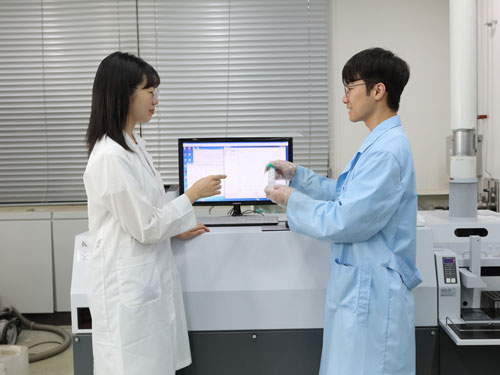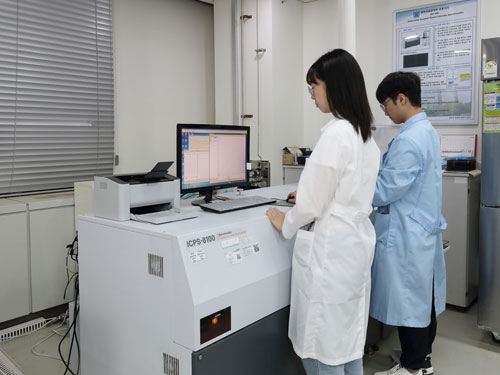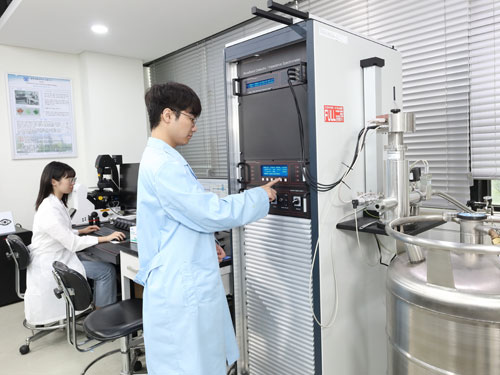- About
- Academics
-
Undergraduate Programs
- Civil and Environmental Engineering
- Architecture and Architectural Engineering
- Mechanical Engineering
- Industrial Engineering
- Energy Resources Engineering
- Nuclear Engineering
- Materials Science and Engineering
- Electrical and Computer Engineering
- Naval Architecture and Ocean Engineering
- Computer Science and Engineering
- Aerospace Engineering
- Chemical and Biological Engineering
-
Graduate Programs
- Civil and Environmental Engineering
- Architecture and Architectural Engineering
- Mechanical Engineering
- Industrial Engineering
- Energy Systems Engineering
- Materials Science and Engineering
- Electrical and Computer Engineering
- Naval Architecture and Ocean Engineering
- Computer Science and Engineering
- Chemical and Biological Engineering
- Aerospace Engineering
- Interdisciplinary Program in Technology, Management, Economics and Policy
- Interdisciplinary Program in Urban Design
- Interdisciplinary Program in Bioengineering
- Interdisciplinary Program in Artificial Intelligence
- Interdisciplinary Program in Intelligent Space and Aerospace Systems
- Chemical Convergence for Energy and Environment Major
- Multiscale Mechanics Design Major
- Hybrid Materials Major
- Double Degree Program
- Open Programs
-
Undergraduate Programs
- Campus Life
- Communication
- Prospective Students
- International Office
- HOME
- Academics
- Undergraduate Programs
- Chemical and Biological Engineering
- Civil and Environmental Engineering
- Architecture and Architectural Engineering
- Mechanical Engineering
- Industrial Engineering
- Energy Resources Engineering
- Nuclear Engineering
- Materials Science and Engineering
- Electrical and Computer Engineering
- Naval Architecture and Ocean Engineering
- Computer Science and Engineering
- Aerospace Engineering
- Chemical and Biological Engineering
Chemical and Biological Engineering
 ChairJong Chan Lee
ChairJong Chan Lee Tel02-880-7400
Tel02-880-7400

Introduction
The chemical industry is one of Korea’s key industries and is closely related with various commodities such as food and clothing. The industry is also a fundamental source of the necessary materials for other industries. Therefore, a nation’s industrial development begins with development of the chemical industry, and Korea was no exception. The chemical industry today consists of many areas, including oil refining, petrochemistry, organic synthesis, process design and automation, chemical/biological engineering, genetic engineering, high molecular weight compounds, processing of semiconductor/electronic materials, electrochemistry, new material engineering, and solar energy.
To maximize the capabilities of students in these areas, basic courses such as process thermodynamics and reaction engineering are offered, and application courses on topics such as separation processes, process control, electrochemistry, and chemical plant design are provided as well. Experiments and chemical industry management courses are also emphasized. In the graduate program, research and experiments are implemented in a more advanced learning process with the purpose of fostering future leaders who have a broad perspective on the field.
The department has 2 institutes (the Institute of Chemical Processes and Institute of Ultrafine Elements Technology) and 10 venture business companies, and conducts many studies supported by the government. The academic and experimental work of the school is applied in industry and contributes to the economic growth and a higher standard of living. The department provides students an opportunity to become globally competitive and to pursue opportunities to create convenience, health, and a promising future for humankind.
Career Opportunities
Most students who have completed the undergraduate program enter graduate school domestically or internationally or go into industry. The majority choose to stay in related fields, but other options are available. Some choose to take national exams such as the Civil Service Examination or Bar Examination in order to work in administrative agencies, and others enter the medical field by taking the Medical Education Eligibility Test (MEET) or Dental Education Eligibility Test (DEET).
Most students who complete the master’s or doctoral program enter related organizations, such as research institutes, government agencies, foreign companies, and educational institutes. Those who consider continuing their studies may choose to study abroad after completing the doctoral program or enter a post-doctoral course in order to prepare for a career in teaching.
The chemical and biological engineering field offers a vast range of career directions for students. Some potential employers are listed below.
| Industry & Government | Graduate School in Korea | Graduate School Overseas | Others | Sum | |
|---|---|---|---|---|---|
|
Career Path for Undergraduates (2020년 ~ 2022년) | 37(16%) | 70(30%) | 8(3%) | 119(51%) | 234(100%) |
|
Career Path for Master's Graduates (2020년 ~ 2022년) | 170(58%) | 23(8%) | 7(2%) | 94(32%) | 294(100%) |
| Division | Contents |
|---|---|
| Educational Institutions | National/public/private universities, international universities |
| National/Public Research Institutes | Korea Institute of Science and Technology, Korea Institute of Industrial Technology, Korea Research Institute of Chemical Technology, Agency for Defense Development, Agency for Technology and Standards, Korea Atomic Energy Research Institute |
| Domestic Companies | SK Energy, GS Caltex, LG Chemicals, LG Life Science, Samsung Electronics, Samsung Engineering, Samsung Total, Samsung SDI, Hyosung, CJ, S-Oil, Hanwha Chemical Corporation, Honam Petrochemical Corporation, Dongjin Semichem, Amore Pacific, Kolon, Isu Chemical, Cheil Industries, Daelim, Hankook Tire, OCI Company |
| International Companies | DuPont Korea, BASF, Pfizer, Dow Corning |
| Government Agencies | Ministry of Knowledge Economy, Ministry of Education & Science Technology, Small and Medium Business Administration, Korean Intellectual Property Office |
| Independent Business | Establishment of venture businesses and small/medium-sized businesses |



